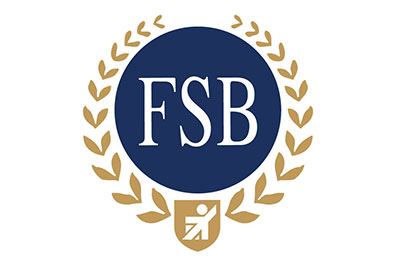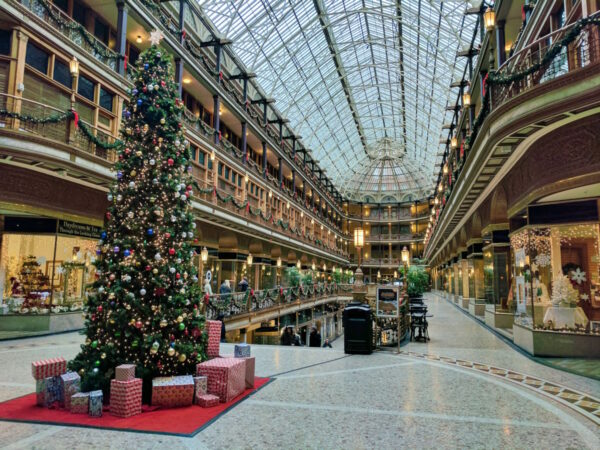 Alan Monahan writes: A month ago I mentioned in my column that the British Retail Consortium was calling for a two-year freeze on business rates.
Alan Monahan writes: A month ago I mentioned in my column that the British Retail Consortium was calling for a two-year freeze on business rates.
Helen Dickinson, its chief executive, has now reopened discussion about the outmoded tax system and the woes of our industry.
She doesn’t believe that a successful transformation can be achieved with a silver bullet and thinks that those in the corridors of power are only beginning to grapple with the problem. I wish I could believe that they had even got that far, Helen!
And ‘having spent many hours, sought much input and procured lots of expert analysis’, she admits that she doesn’t have an answer to the ‘fundamental problem of what the all-encompassing solution is’.
Helen is sure, though, that it doesn’t lie within the constraints of the business rates system alone.
And, what will come as a surprise to many small retailers, is that she also doesn’t believe that an online sales tax is the way forward, arguing that it is ‘the wrong answer to the wrong question’.
 Helen says: ‘It is short-sighted to consider different forms of business taxation in isolation from one another or retail in isolation to other industries. For retail, in part because it is increasingly difficult to distinguish between an online and physical sale and because we know retailers are increasingly adopting multichannel operations.
Helen says: ‘It is short-sighted to consider different forms of business taxation in isolation from one another or retail in isolation to other industries. For retail, in part because it is increasingly difficult to distinguish between an online and physical sale and because we know retailers are increasingly adopting multichannel operations.
‘Rates apply to everyone operating commercial property, so why would the industry with the biggest sales numbers and the smallest profit numbers want to tax that biggest number. Implementing a sales tax would mean an industry which already pays more than its fair share, would pay even more!’
But hang on a minute. Not every retailer has a multi-channel operation and many small independents don’t see why online-only businesses like the Amazons of this world shouldn’t cough up so that the burden on minnows with physical stores is reduced. And why is it so difficult to distinguish between an online and physical sale?
Commenting on Amazon UK’s tax bill, which fell by £2.8m last year despite the company seeing pre-tax profit nearly treble, Martin McTague, policy chairman of the Federation of Small Businesses, said: ‘Small businesses are at the heart of their communities, providing a hub for people to shop, meet and socialise. That’s not something a retailer operating exclusively online is going to give you. We need to rebalance the taxation system.
 ‘As things stand, business rates are rising while corporation tax is coming down. If we want to breathe life back into our high streets that needs a rethink.’
‘As things stand, business rates are rising while corporation tax is coming down. If we want to breathe life back into our high streets that needs a rethink.’
Spot on, sir!
Yes, rates are paid by all those running a commercial property, but it is the BRC who tell us that retail is the largest private sector employer in the country, making up 5% of the economy, paying around 10% of business taxes and within that nearly 25% of business rates – over £7 billion per year. Our industry shouldn’t just ask for action to do away with this injustice, it should demand it.
There are 2,500 fewer shops than there were three years ago and many of those small ones in our towns and villages are fighting for survival. The BRC says it is ‘the go-to trade association for all UK retailers’, so it shouldn’t forget them: they are part of the tapestry of our industry.
Yes, of course retailing in the future will look different, with fewer stores, most of which will see a blurring of the lines between digital and physical. But in the quest to ‘work in partnership with government to upskill the retail workforce’, the little local gift and greeting card shop must surely be part of that conversation.
Being something of a Napoleon buff, I was drawn to the headline in the i newspaper, ‘Britain is no longer a nation of small shopkeepers’. I fully expected to read gloomy figures about more store closures, but wasn’t prepared for findings from The Resolution Foundation.
 Its report – Is Everybody Concentrating? – shows that the top five chain stores have increased by 11% in a decade to 74% of the country’s general retail market. And Britain’s 100 biggest firms now account for nearly a quarter of total revenue across British business, up 25% since 2003-04.
Its report – Is Everybody Concentrating? – shows that the top five chain stores have increased by 11% in a decade to 74% of the country’s general retail market. And Britain’s 100 biggest firms now account for nearly a quarter of total revenue across British business, up 25% since 2003-04.
The Foundation says changes in the market power of leading firms can dramatically affect other businesses and living standards through their ability to set higher prices and pay lower wages
However, one of the biggest falls in concentration is in internet retail, which has fallen 15% to 23%, as the number of online firms increased from 3,000 to 20,000 over 10 years.
The popularity of buying online – it’s so easy – may also be one reason that British households spent an average £900 more than they earned last year, which left the Office for National Statistics pondering whether people were living ‘beyond their means’.
We will now have to wait and see what effect the Bank of England interest rates’ rise has on the discretionary spending of households. If previous experience is anything to go by, they’ll still take holidays and won’t stint on Christmas: retailers everywhere will certainly be hoping that’s still the case when the festive countdown begins.
And, of course, we still have Black Friday to come. But I’m not taking bets on just how many of you will be joining in this year. After all, there is only so much discounting that you can do.
















